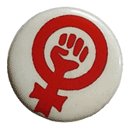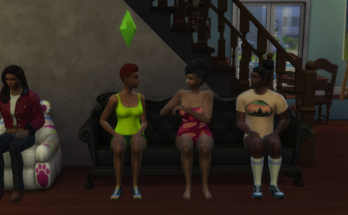By Alejandra Rishton
IVAW.org is a site for members and supporters of Iraq Veterans Against the War. There is a closed component of the site for members, veterans of any U.S. military branch after September 11, 2001 who do not agree with the militaristic policies of the U.S. government, as well as an open website for non-member supporters. The screening method for IVAW members involves a verification of your identity and military service. This lack of anonymity allows for healthy online interactions. The question remains, “is IVAW.org a safe space for women?”
When previously evaluating IVAW.org through a feminist, anti-racist, and democratic perspective, I found that the structure of the website and organization allow for horizontal creation and management. This entails equal access to all users and a democratic election for board members and web moderators. IVAW.org purposfully designed their website to be a safe space free of all but the most necessary hierarchical relationships.
In order to further my investigation of the site beyond my experience as a user, I interviewed three members of IVAW.org. They unanimously selected to remain anonymous for the purpose of this ethnography. Through this process I found that IVAW is very much an experience in x-reality for most members. Beth Coleman defines x- reality as the continuum between the digital and the analog, the reality that crosses between the virtual and the real. To properly asses IVAW as a safe space I included questions about the entire IVAW experience. I found that although IVAW provides a relatively safe space for it’s members online, members often feel unsafe outside the comfort of the IVAW environment. They cite government surveillance, violence in the form of threats and physical harm from fervent war defenders and some disparate treatment as females within the organization.
While IVAW may strive to be a horizontal organization, it remains an outgrowth of a male dominated culture that has to contend with the patriarchal norms and values with which it’s members have been enculturated. Off the website, members of IVAW interact as activists and organizers. In this environment, which is less regulated and more spontaneous than it’s web counterpart, some gendered disparities arise.
Anonymous 1 states, “I feel very safe as a member of IVAW. When I joined as a new member and now as a staff member I have felt respected and completely safe with the rare exception of an individual talking or acting a little inappropriately. On the other hand I have heard from several other women that they have felt sexual politics play a role in many of their interactions in IVAW. Women have felt talked over, talked down to, and even harassed. So I don’t want to white wash over others experiences but my experience has been overwhelmingly positive.”
The inherent political nature of IVAW predisposes the organization to different outside pressures than non-political websites. Namely, there is a threat of government surveillance and intervention. IVAW participates in non-violent civil disobedience and many members have been arrested during political actions and some have suffered bodily harm. IVAW released a press statement on October 26 of 2011 after a member was injured. The press release states, “Late last night, Scott Olsen, a former Marine, two-time Iraq war veteran, and member of Iraq Veterans Against the War, sustained a skull fracture after being shot in the head with a police projectile while peacefully participating in an Occupy Oakland march.”
IVAW members are also exposed to physical threats from citizens who engage with pro-war ideology. Members report being followed and harassed by what they describe as ‘the far-right.’
The organization is structured to minimize power hierarchies, but regulations are still enforced for the sake of the safety of the members. Anonymous 2 states, “As far as hierarchy in the organization, there is not meant to be. There is a small staff: membership coordinator, communications director, and office manager in NYC, director of development in Philly, and me, field organizer in Decatur, Tennessee. We have a board of directors (right now we have 6) who are elected by the membership at convention each year, and an advisory board who are mostly academics and experts in various fields who help us out from time to time.”
The board of directors is tasked with maintaining the security of the organization. They have rules in place to minimize hostile interactions between members and the public. The board maintains the power to withhold membership from those who may make the organization unsafe. Recently the board stripped a fellow board member of his membership when they learned about prior convictions.
A board member writes, “We are writing to inform the membership concerning a former member and board member, Jorge Gonzalez. Some may know that Jorge was removed as a director; his membership was also revoked. It came to light, thanks to some allies and a FOIA request, that he is a convicted sex offender with a minor under the age of 16. The Board acted as soon as this information was revealed, however we regret to inform the membership that he was permitted (as we did not know about the situation) to not only be around members’ children, but that he also babysat members’ children.”
The board member’s announcement was published because the board decided that the safety of other members was in question, not to further shame or humiliate the dismissed director. The actions of the board show clearly that the organization has chosen to enforce regulations for the safety of their members. They also show that regulations are imperfect, and despite the careful effort of IVAW to create a horizontal, representative, and safe organization, the social and political norms of our culture still infiltrate the organization.
I have found that the internet experience and the x-reality experience of IVAW members differ greatly and offer differing levels of safety. The website allows for members to express their views and communicate freely with one another, both tasks that prove more difficult in embodied situations. This is an example of what Gayatri Spivak calls affirmative sabotage, a method of using the instruments of colonialism and turning them into tools for change. IVAW has created a space on the internet that is nonhierarchical and safe; in this manner they are using the resources of capitalism in the interest of the humanities.

